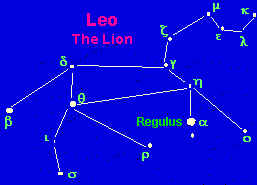Concept: The Solar System Part 2
EXTRA CREDIT!
Get 2 extra credit points by going to the Griffith Observatory!
Objective: Students will learn the Earth's rotation on its axis effects the Earth’s temperatures and length of days.
Brain Pop- “Seasons”
Solar System quiz next week.
Brain Pop- “Seasons”
Solar System quiz next week.
Vocabulary
1. Axis
2. Rotation
3. Revolution
4. Tilt
 |
| Seen in Summer |
 |
| Seen in the Spring |
 |
| Seen in the Winter |
Solar System Tour answers:
1. The Sun is a star and is made of hydrogen and helium.
2. The solar system is the Sun, moons, planets, asteroids and comets.
3. The terrestrial planets are Mercury, Venus, Earth and Mars. The gas giants are Jupiter, Saturn, Uranus and Neptune.
6. Asteroids are both made of rock and orbit the Sun. Comets are also made of ice. Asteroids orbit in a circle and comets orbit in an oval.
5-ESS1-2.
Represent data in graphical displays to reveal
patterns of daily changes in length and direction of shadows, day and night,
and the seasonal appearance of some stars in the night sky.
ESS1.B:
Earth and the Solar System
•The orbits of Earth around the sun and of the moon
around Earth, together with the rotation of Earth about an axis between its
North and South poles, cause observable patterns. These include day and night;
daily changes in the length and direction of shadows; and different positions
of the sun, moon, and stars at different times of the day, month, and year.
(5-ESS1-2)
EXTRA CREDIT!
Want more information about the Griffith Observatory? Click here!
How can you get extra credit?
Take a picture with Albert Einstein and email the picture mr.gantt@gmail.com.
For more information about Endeavour and the California Science Center, click here.
Space Fest 2015-October 30-November 1
Journey to Space: The Exhibition-Opens October 29
California Science Center
700 Exposition Park Drive
Los Angeles, CA 90037
For directions, click here.
Take a picture with Endeavour and email it to mr.gantt@gmail.com.


















No comments:
Post a Comment